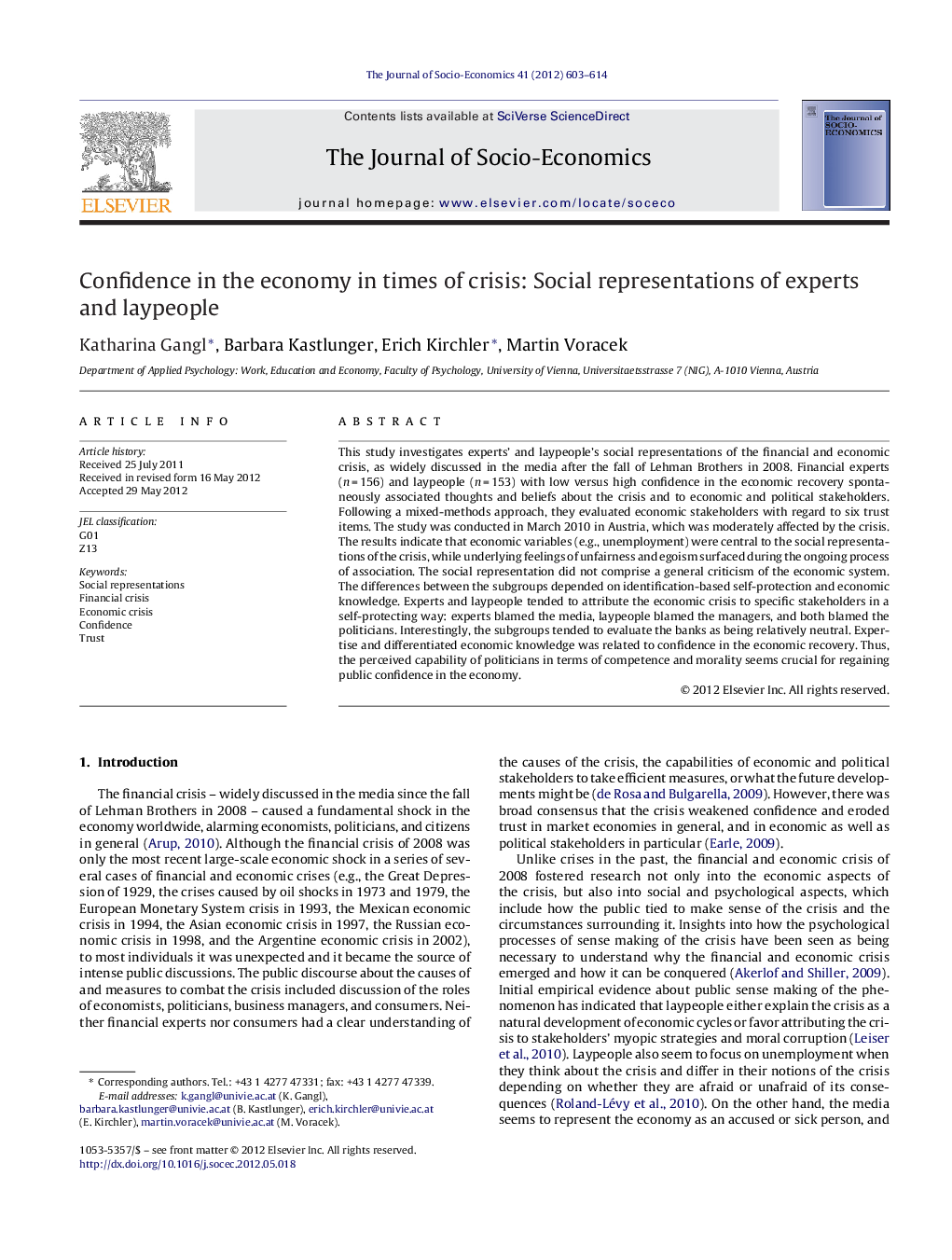| Article ID | Journal | Published Year | Pages | File Type |
|---|---|---|---|---|
| 970684 | The Journal of Socio-Economics | 2012 | 12 Pages |
This study investigates experts’ and laypeople's social representations of the financial and economic crisis, as widely discussed in the media after the fall of Lehman Brothers in 2008. Financial experts (n = 156) and laypeople (n = 153) with low versus high confidence in the economic recovery spontaneously associated thoughts and beliefs about the crisis and to economic and political stakeholders. Following a mixed-methods approach, they evaluated economic stakeholders with regard to six trust items. The study was conducted in March 2010 in Austria, which was moderately affected by the crisis. The results indicate that economic variables (e.g., unemployment) were central to the social representations of the crisis, while underlying feelings of unfairness and egoism surfaced during the ongoing process of association. The social representation did not comprise a general criticism of the economic system. The differences between the subgroups depended on identification-based self-protection and economic knowledge. Experts and laypeople tended to attribute the economic crisis to specific stakeholders in a self-protecting way: experts blamed the media, laypeople blamed the managers, and both blamed the politicians. Interestingly, the subgroups tended to evaluate the banks as being relatively neutral. Expertise and differentiated economic knowledge was related to confidence in the economic recovery. Thus, the perceived capability of politicians in terms of competence and morality seems crucial for regaining public confidence in the economy.
